In the ever-evolving landscape of healthcare, marketing strategies must keep pace to remain effective. As we step into 2024, let’s explore the top seven trends shaping the future of healthcare marketing.
1. Personalization Takes Center Stage
In 2024, personalization isn’t just a trend; it’s a game-changer. [90% of leading marketers say personalization significantly contributes to business profitability, according to Think with Google]. With patients expecting tailored experiences, successful healthcare marketers are leveraging data to deliver personalized content, from targeted emails to interactive online resources.
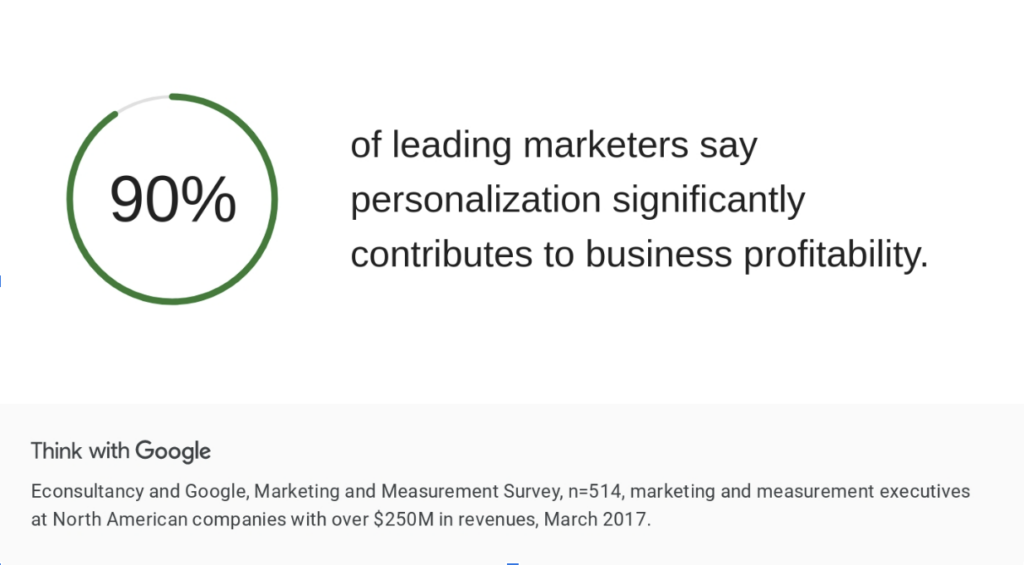
2. Video Content Reigns Supreme
In a world dominated by screens, video content is the king of engagement. 73% of consumers prefer to watch a short-form video to learn about a product or service, according to The Leap. Healthcare marketers are utilizing video to explain complex concepts, share patient testimonials, and even conduct virtual tours, providing an immersive experience that resonates with audiences.
According to wyzowl, 89% of consumers want to see more videos from brands in 2024.
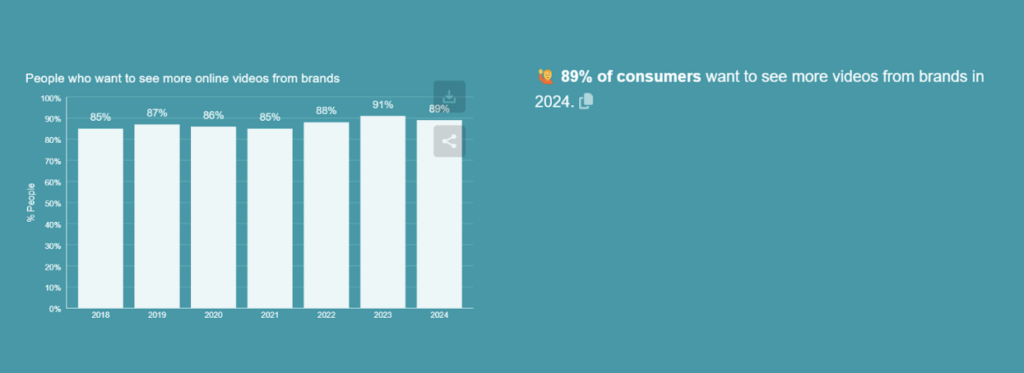
3. Rise of Influencer Marketing in Healthcare
Influencers are no longer confined to fashion and lifestyle; they are making waves in healthcare too. [Here’s a list of the Top 10 U.S. Social Media Influencers in Healthcare]. Collaborating with healthcare professionals and patient advocates brings authenticity to marketing efforts, fostering trust and credibility among your audience.
4. Chatbots and AI Transform Patient Interaction
Automation is not a threat; it’s a powerful ally. According to Yahoo Finance, a comprehensive report estimates that the global Healthcare Chatbots Market, valued at USD 275.63 million in 2023, is expected to escalate at an impressive compound annual growth rate (CAGR) of 21.72%, reaching USD 1,091.64 million by the year 2030. This robust growth is attributed to the heightened demand for healthcare automation and the efficiency offered by AI-driven conversational solutions.
Chatbots powered by artificial intelligence streamline patient communication, providing instant responses to inquiries, appointment scheduling, and even basic medical advice.
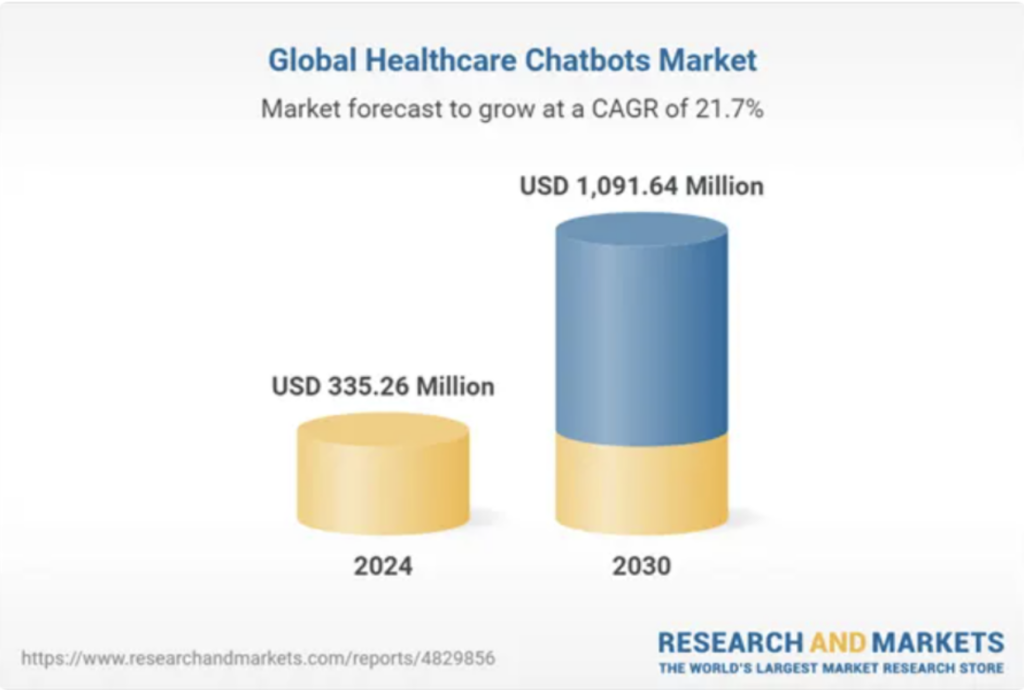
5. Telehealth’s Continuing Surge
The pandemic accelerated the adoption of telehealth, and its momentum persists. [According to Tech Report, the most common reason people in the US used telemedicine in 2023 was follow-up appointments, which made up around 47% of all US telehealth appointments. It seems to be the convenience that people find attractive.
Also stated in the Tech Report article, a paper published in The American Journal of Managed Care, researchers stipulate that 52.5% of follow-up patients found telemedicine appointments more efficient].
Healthcare marketers should embrace this trend, highlighting the convenience and accessibility of virtual healthcare options in their campaigns.
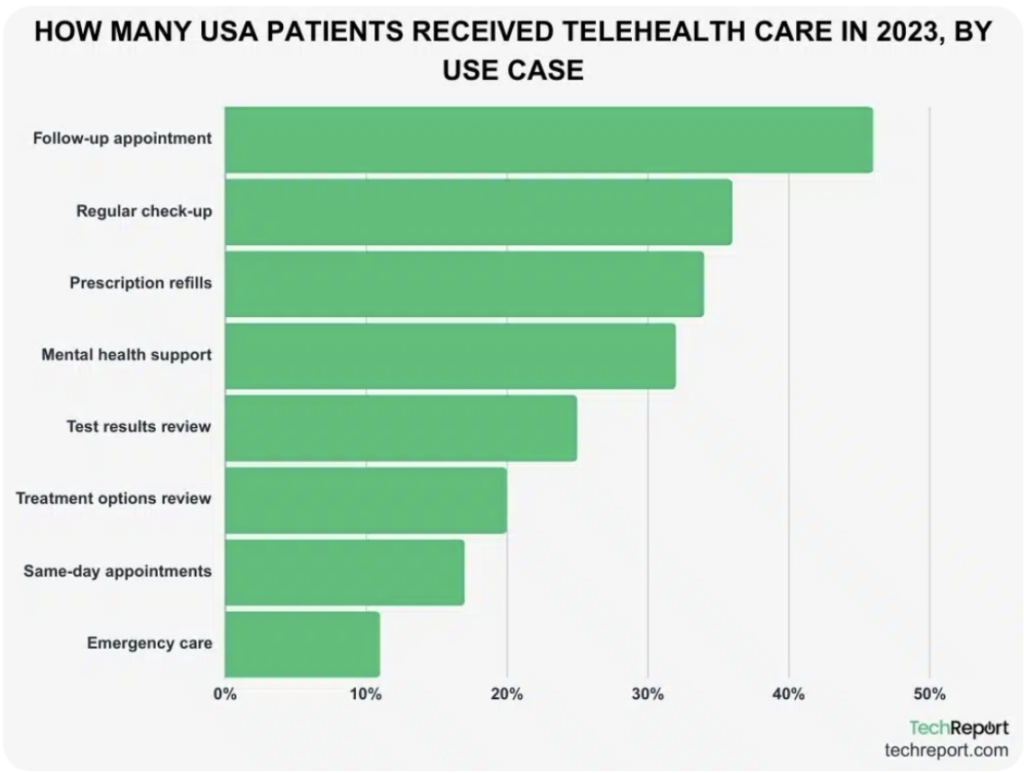
6. Social Media for Health Awareness
Social media is not just a platform for personal connections; it’s a health information hub. Our friends at Hootsuite had this to say; Social media platforms offer healthcare professionals a way to engage with the public. Answering common health questions stops people from self-diagnosing and gives them peace of mind. For example, the World Health Organization developed a Facebook Messenger chatbot.
Healthcare marketers are actively participating in discussions, sharing credible information, and engaging with their audience to raise health awareness.
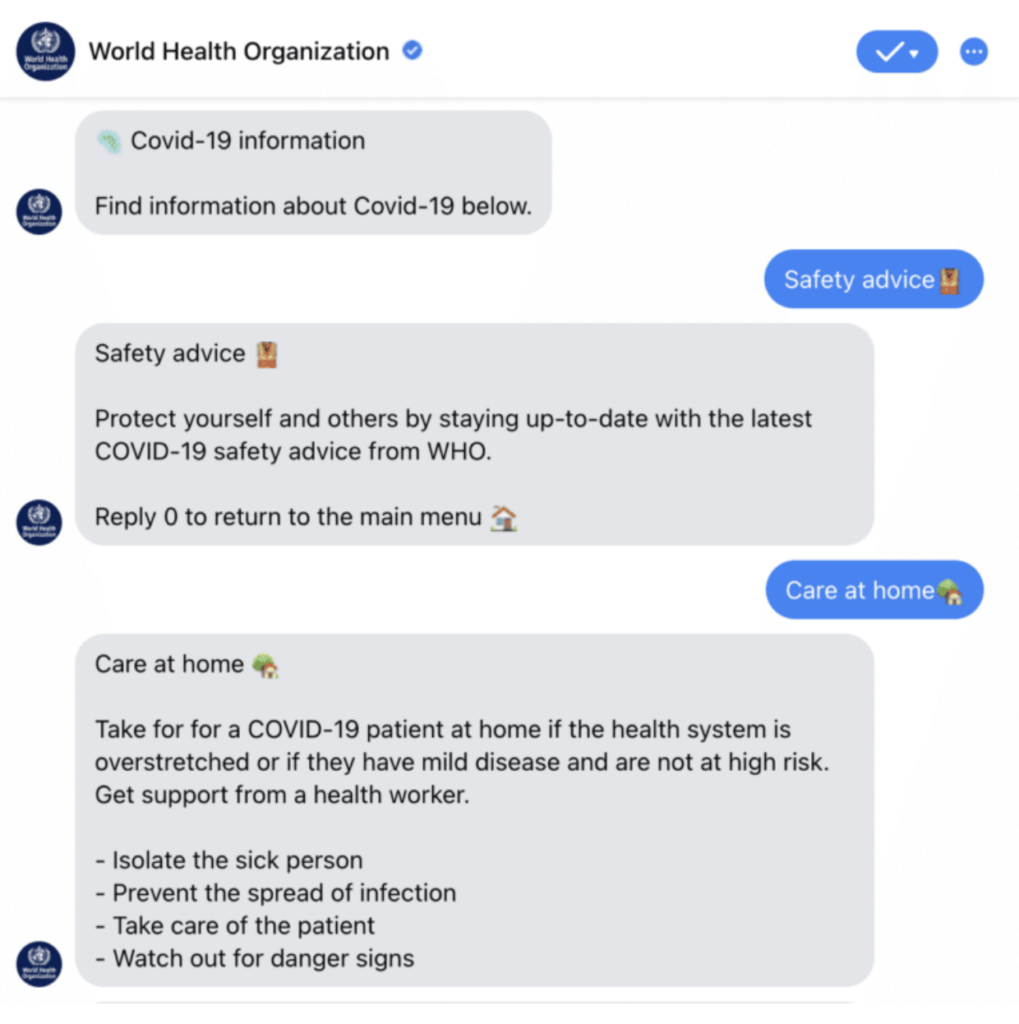
7. Transparency Builds Trust
Transparency is more than a buzzword; it’s a cornerstone of trust. During a 2022 survey carried out among consumers who purchased something online in the past six months from various countries across the globe, 60 percent stated they believed that trustworthiness and transparency were the most important traits of a brand, dominating all other traits, according to Statista.
Healthcare marketers need to be transparent about costs, treatment options, and patient outcomes, building a trustworthy relationship with their audience.
Conclusion
In 2024, successful healthcare marketing goes beyond conventional strategies. It embraces personalization, engages through video content, collaborates with influencers, utilizes AI for efficient interactions, rides the telehealth wave, leverages social media for health awareness, and prioritizes transparency. By staying ahead of these trends, healthcare marketers can navigate the complexities of the industry and truly connect with their audience.





